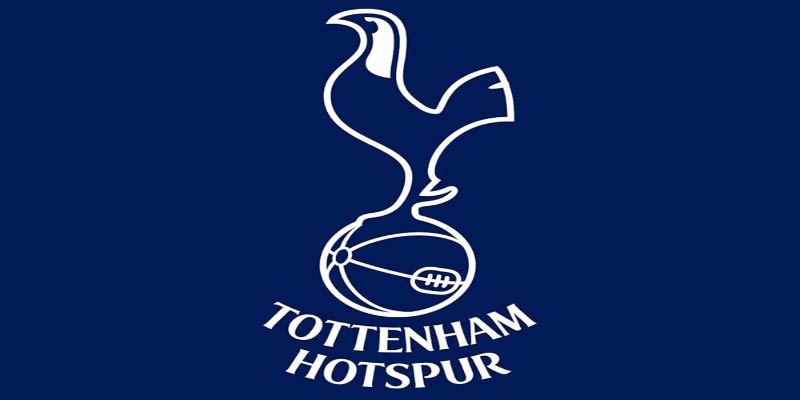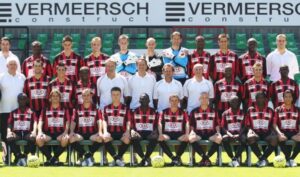FC Tottenham: A Brief History and Key Moments

FC Tottenham: A Brief History and Key Moments
FC Tottenham, also known simply as Tottenham Hotspur, is a football club steeped in rich history and tradition. Established in 1882, the club has grown from its modest beginnings to become a significant player in both English and world football. Over the years, FC Tottenham has garnered a passionate following, making it one of the most recognized clubs globally Jun88.
FC Tottenham: A Brief History
The journey of FC Tottenham began in the late 19th century, when a group of schoolboys in the Tottenham area of London decided to form a football club. Initially known as Hotspur Football Club, they played their first match on 30th September 1882 against a team from a neighboring district. The early years were marked by local competition, but it wasn’t long before the club began to establish itself on a larger stage.
Formation and Early Years
FC Tottenham was formed at a time when football was rapidly growing in popularity across England. The club’s name change to Tottenham Hotspur came about in 1884, inspired by the famous character Harry Hotspur from Shakespeare’s Henry IV. This name change set the tone for the club’s identity, which centered around ambition, grit, and passion.
In its formative years, the club participated in various local leagues and competitions. It joined the Southern League in 1896 and subsequently entered the Football League in 1908. These early years laid the groundwork for what would become a storied history filled with successes and challenges.
Rise to Prominence
The club experienced its first taste of major success in 1901 when it became the first non-League club to win the FA Cup, defeating Sheffield United in the final. This victory marked a turning point for FC Tottenham, instilling a sense of belief and determination that would resonate through the club’s future endeavors.
The 1920s were particularly fruitful for the club, as it not only secured additional FA Cup victories but also clinched its first league title in 1951. During this period, the club honed its skills and developed a reputation for playing attractive, attacking football.
Modern Era
The club continued to flourish throughout the 1960s and 1970s, achieving notable successes, including winning the UEFA Cup in 1972. However, it faced difficulties in the subsequent decades, with fluctuating performances affecting its standing in English football.
The turn of the millennium brought renewed hope for FC Tottenham as it invested in players and youth development. A new emphasis on tactical evolution and modern football strategies led to a resurgence that has captured the attention of fans around the world.
Key Players in FC Tottenham’s Success
Throughout its illustrious history, FC Tottenham has been home to many legendary players who have left an indelible mark on the club and contributed significantly to its successes. From goal-scoring forwards to steadfast defenders, each player has played a role in shaping the identity of FC Tottenham.
Legendary Forwards
When discussing the key players who have worn the iconic white jersey, one cannot overlook the contributions of legendary forwards such as Jimmy Greaves and Gary Lineker.
Jimmy Greaves remains one of the most celebrated strikers in English football history. His clinical finishing and ability to find the back of the net made him a fan favorite at FC Tottenham during the 1960s. Greaves’ record-breaking goal-scoring feats have secured his legacy, leaving an inspiration for generations of young strikers.
Gary Lineker followed in his footsteps during the late 1980s and early 1990s. Known for his intelligent movement and predatory instincts, Lineker became the club’s top scorer. His tenure at Tottenham solidified his status as one of the top forwards of his generation.
Midfield Maestros
A successful football club requires creativity and vision in midfield, and FC Tottenham has seen its fair share of exemplary talents in this area. Players like Glenn Hoddle and Luka Modrić represent the pinnacle of artistic flair and technical skill.
Glenn Hoddle was a true innovator in the midfield. His passing ability and tactical awareness allowed him to dictate the game’s tempo and create scoring opportunities for his teammates. Hoddle’s impact on the club extended beyond his playing days, as he later returned as a manager, further solidifying his connection to the club.
Luka Modrić, on the other hand, arrived at FC Tottenham from Croatia and quickly established himself as one of the best midfielders in Europe. His time at the club was marked by consistent performances and numerous accolades. Modrić’s vision and playmaking abilities transformed the midfield dynamic, showcasing the importance of quality in this pivotal position.
Defensive Pillars
Defensive stability is crucial for any successful football team, and FC Tottenham has had strong defenders who embodied this principle. Notable figures include Ledley King and Hugo Lloris.
Ledley King was nothing short of a defensive titan. His leadership, combined with exceptional physical attributes, made him a stalwart at the back. King’s loyalty to the club and willingness to overcome injuries cemented his status among supporters as a club legend.
Hugo Lloris, the current captain and goalkeeper, has been a central figure in recent successes. His quick reflexes, command of the area, and shot-stopping abilities have earned him acclaim as one of the best goalkeepers in the Premier League. Lloris’ leadership on and off the pitch continues to inspire his teammates while keeping the club’s aspirations alive.
FC Tottenham’s Home Stadium: Tottenham Hotspur Stadium
Tottenham Hotspur Stadium represents more than just a venue for matches; it is a symbol of the club’s ambitions and aspirations. Opened in April 2019, this state-of-the-art facility captures the essence of modern football while honoring the club’s storied past.
Design and Architecture
The design of Tottenham Hotspur Stadium reflects a commitment to innovation and fan experience. With a seating capacity of over 62,000, it stands as one of the largest stadiums in the UK. The architecture incorporates a blend of contemporary aesthetics with elements paying homage to the club’s rich heritage.
From the iconic cockerel atop the stadium roof to the use of the club’s colors in the design, every aspect resonates with the ethos of FC Tottenham. The stadium’s unique features, including the retractable pitch and advanced technology, demonstrate a dedication to providing an unparalleled experience for fans and players alike.
Fan Experience
One of the primary goals of the new stadium was to enhance the overall matchday experience for fans. The venue boasts an impressive array of hospitality options and social spaces designed to cater to diverse age groups and preferences. High-definition screens, modern concessions, and improved accessibility ensure that fans enjoy memorable experiences on game days.
Additionally, the stadium serves as a hub for community engagement, hosting events beyond football matches. Concerts, rugby matches, and other sporting events make it a versatile space that brings people together, further solidifying the club’s relationship with the local community.
Economic Impact
The opening of Tottenham Hotspur Stadium has had a significant economic impact on the surrounding area. By attracting visitors for matches and events, the stadium has boosted local businesses and created job opportunities. The club’s commitment to working closely with stakeholders exemplifies its desire to be a positive force in the community and promote local initiatives.
Economic data showcases the benefits of the new stadium:
| Economic Metric | Impact |
|---|---|
| Job Creation | 3,500+ jobs generated |
| Local Business Revenue Boost | Estimated £300 million annually |
| Event Attendance | Expected 2 million visitors/year |
This partnership between FC Tottenham and the local community is critical for fostering goodwill and support, ensuring the club remains an integral part of the Tottenham landscape.
Recent Achievements of FC Tottenham
In recent years, FC Tottenham has emerged as a formidable force in English football. The club’s commitment to excellence and continuous improvement has paved the way for several noteworthy achievements that have captured the imagination of fans worldwide.
Competitive Performances
The club’s performance in domestic and international competitions has been commendable. FC Tottenham has consistently qualified for European competitions, showcasing its competitiveness in the Premier League and solidifying its reputation as a top club.
Achieving a place in the Champions League has become a regular occurrence for FC Tottenham, reflecting the team’s progress and ambition. Reaching the finals in the 2018-2019 season against Liverpool was a monumental moment in the club’s history, even though they fell short. This achievement demonstrated the team’s resilience and potential to compete at the highest level.
Individual Awards
The recognition of individual players through prestigious awards highlights the talent within FC Tottenham. Players like Harry Kane, Son Heung-min, and Dele Alli have gained accolades for their remarkable performances and contributions to the team.
Harry Kane, in particular, has established himself as one of the premier strikers in football. His goal-scoring prowess and ability to create chances for others have earned him multiple Golden Boot awards and a spot among the highest goalscorers in the Premier League’s history.
Son Heung-min’s electrifying pace and technical skills have made him a fan favorite. His contributions have not only led to personal accolades but have also been instrumental in FC Tottenham’s successes in cup competitions and league standings.
Progress off the Pitch
Beyond competitive achievements, FC Tottenham has made strides in establishing a robust infrastructure. The club’s investment in facilities, sports science, and analytics has enhanced player performance and development.
Furthermore, the club’s dedication to community outreach and social responsibility initiatives reinforces its commitment to being a positive influence beyond football. Programs aimed at promoting inclusivity, health, and education underscore FC Tottenham’s desire to make a lasting impact on society.




